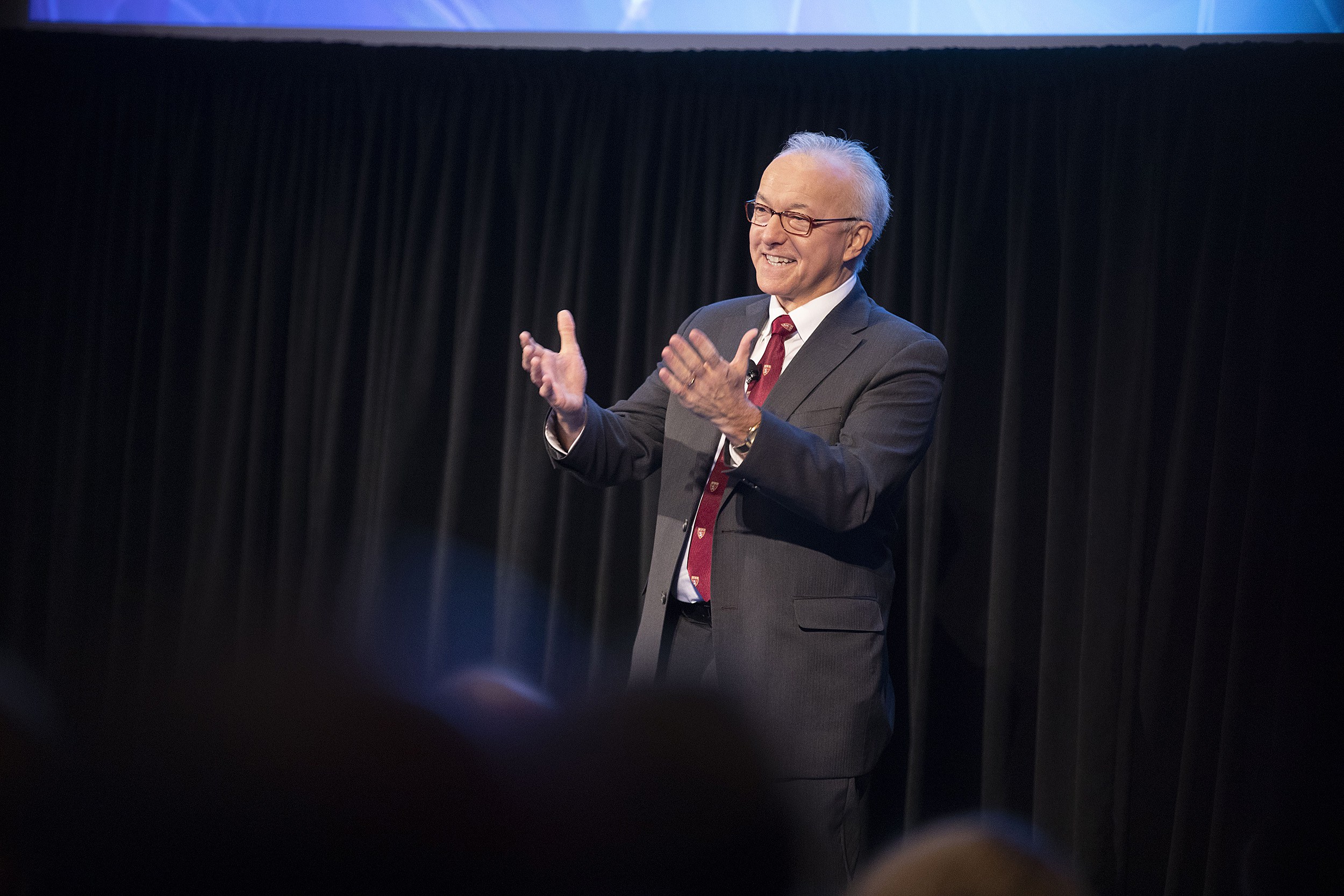A foundation headed by philanthropist and businessman Len Blavatnik has pledged $ 200 million to Harvard Medical School (HMS), its largest gift ever, with the overarching aim of transforming new medical discoveries into patient treatments.
The gift, from the Blavatnik Family Foundation, was announced at a scientific symposium at the School on Thursday and was hailed for providing key resources at a time of enormous opportunity for medical science.
Announcing the donation, Harvard President Larry Bacow described it as an “unprecedented act of generosity and support,” and thanked Blavatnik for his faith that HMS — and the region’s broader life sciences community — can make dreams of dramatic progress in human health become reality.
“It’s one thing to dream for oneself, for one’s family and friends, even for one’s community. It’s another thing to dream for all people, to dream for a future in which more lives are improved and saved through the creation and application of knowledge through science,” Bacow said.

HMS Dean George Q. Daley called the donation “a transformative opportunity” for the School and said it will enable a new generation of scholars and scientists to emulate those who made key discoveries in every area from organ transplants to polio vaccines to gene therapy.
“This is who we are; this is what we do,” Daley said. “Today we are here to set the course for an even more impactful future.”
The announcement drew a constellation of Harvard leaders past and present, including Bacow, former presidents Drew Faust, and Lawrence Summers (who addressed the audience via video), as well as former HMS deans Jeffrey Flier and Joseph Martin. Blavatnik could not be present, since he had been treated for appendicitis in London and was unable to travel.
An accompanying scientific symposium on Thursday focused on the future of human health and highlighted some of the cutting-edge discoveries and fresh progress against once-intractable ailments that the gift aims to target.
Eric Lander, director of the Broad Institute of M.I.T. and Harvard, said a key pick-me-up for the region’s research environment has been the transformation of what had been a group of individually excellent institutions into a broader life sciences community. Today, he said, researchers routinely collaborate across disciplines and institutional boundaries. As biomedical science becomes more complex, that collaborative spirit will bring together researchers whose progress will depend on skills and insight from those in other fields.
“There is no biomedical community like this,” Lander said, “and we have an enormous responsibility to deliver.”
The new funding will support new initiatives and create an umbrella research organization called the Blavatnik Institute at Harvard Medical School. The initiatives will include support for emerging technologies that provide powerful new tools for researchers, support for techniques to analyze the massive data sets routinely gathered now, and funds to hire experts in artificial intelligence, machine learning, and augmented reality for data-driven advances in medical science.
Other initiatives aim to foster cross-disciplinary collaboration among researchers at HMS and its affiliated hospitals and institutions. The effort also will create the Blavatnik Harvard Life Lab at Longwood to provide collaborative workspaces for early stage, high-potential biotech and life sciences startups created by Harvard faculty, postdoctoral fellows, students, and alumni.
